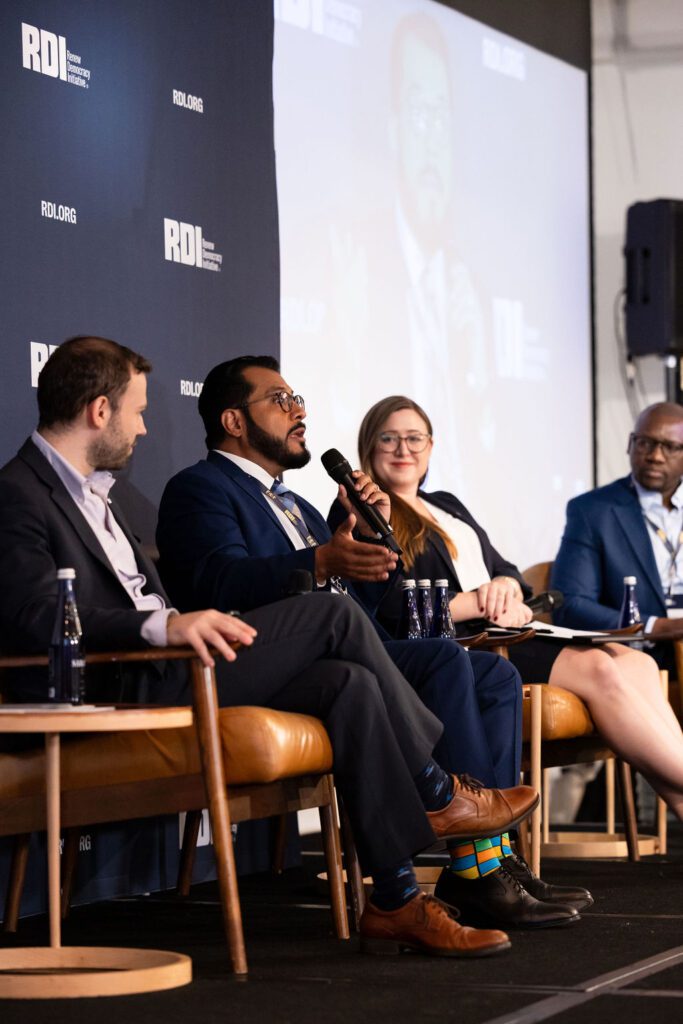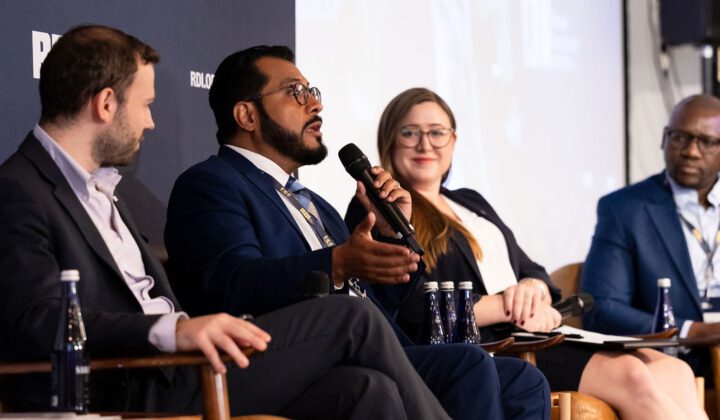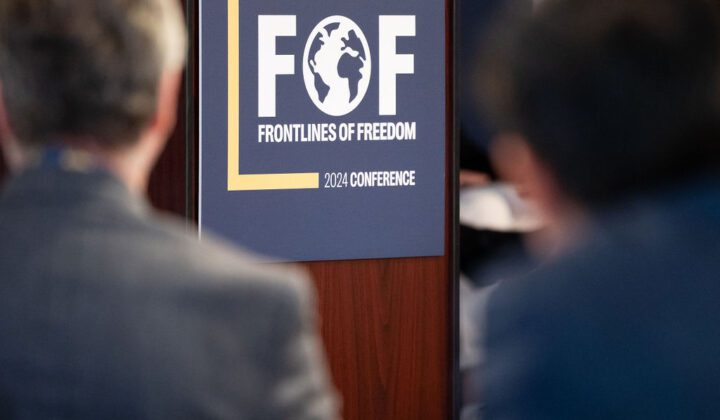Plotting to kidnap activists in New York. Spying on students in American universities. Stalking and harassing dissidents seeking refuge in the US.
Dictators are reaching into free societies to silence dissidents and coerce governments, organizations, and companies, undermining the security of exiles and ordinary Americans alike. The United States is on the frontlines of a global fight.
At the end of last month, RDI convened its second annual Frontlines of Freedom Conference on combating transnational repression and authoritarian influence in open societies. We brought together dissidents, business leaders, academics, and policymakers to discuss the scope of the authoritarian threat, what America can do to defend itself, and how democracies can begin working together to reinvigorate a shared commitment to defend our most cherished institutions.
It’s difficult to condense a full day of meaningful, incisive conversations into a few paragraphs. There is plenty that isn’t included here, but the following points represent some of the most important ways in which businesses, universities, and the government can resist the long arm of authoritarian influence.
Economic Security is National Security
Authoritarian governments don’t need to cross oceans to exploit key vulnerabilities in our systems. Regimes can use levers like supply chains, market dominance, and economic espionage to consolidate their hold on power, repress dissent, and ultimately threaten American national security.
Ethical business practices are good business practices. Products from sectors like seafood, textiles, and cobalt often involve forced labor, to the profit of authoritarian states. But short-term profit maximization strategies fail to consider the long-term risks of being co-opted by these regimes. Consider the intense pressure Western companies still operating in Russia are facing—not from American and European sanctions, but from the Kremlin, which is seizing foreign business assets and nationalizing their operations. Divesting from authoritarian governments may hurt in the short run, but by doing so now, businesses invest in long-term stability, ensure ethical business practices, and build supply chains that will remain more resilient in the face of geopolitical instability.
Our economic and financial systems are vulnerable to authoritarian influence, but they are also tools we can wield against these regimes. By divesting from bad governments and supply chains that exploit forced labor, we take money out of dictators’ pockets. A poorly funded regime is a weak regime, and that is good for US national security, US businesses, and global human rights.
American Universities Are Not Immune to Authoritarian Influence—They Are One of Its Most Effective Vectors
There are dozens of well-documented cases of transnational repression on campuses across the country. Students in the United States are surveilled, their freedom of speech is curbed in the classroom, and their relatives back home are threatened. Worse, universities not only fail to protect students from authoritarian intimidation—they sometimes show bias in favor of authoritarian governments.
Universities can help deal with authoritarian influence by recognizing it as a problem first and foremost. They can then adopt a standard definition of transnational repression on campuses and learn to recognize the common tactics associated with it. They should also incorporate strategies for resisting transnational repression into existing student and faculty codes of conduct, create mechanisms for reporting incidents, and make it clear that anyone surveilling, harassing, or threatening university students will face consequences.
Technology Requires Transparency to Prevent Tyranny
Most technology is amoral—a force for good in the hands of a democratic leader could become an instrument of repression in the hands of a dictator.
Authoritarian regimes use technology to monitor and suppress dissent beyond their borders and to spread propaganda. AI has made these tactics easier and more efficient for perpetrators, and harder for dissidents and their allies to track. Digital transnational repression is carried out via a wide variety of mechanisms, including but not limited to threats and doxing online, biometric surveillance, phishing, cyber attacks, and spyware.
Beyond dissidents, the online general public also suffers from the wild west of AI and social media algorithms. Generative AI amplifies disinformation campaigns by creating high-volume, tailored propaganda. Without transparency into how our algorithms work and promote content, we can’t always know whose messages we are receiving and how they’re trying to influence us.
Dissidents Are the Most Vulnerable
Living in the United States does not mean you are free from a regime’s influence. Whether on campus, online, or walking down the street, political dissidents can be surveilled, intimidated, and even assassinated by foreign strongmen.
These efforts yield pervasive effects across our society and need to be addressed at the federal, state, and local levels. But it is impossible to craft a cohesive policy response without a clear legal definition of the issue. Such a definition doesn’t currently exist. Thankfully, however, there are several bipartisan efforts to take legal action to formally define transnational repression and develop effective policy coordination and responses.
The US asylum and immigration system poses significant challenges for dissidents, including delays and potential detentions. Dictators also exploit bogus INTERPOL red notices to punish dissenters and get host countries to do their dirty work by deporting activists back to the very places they fled from.
Open Society Requires Collective Defense
Authoritarian regimes use the full power of their systems to erode the institutions and values that bind together open societies: free expression, free and fair markets, and the open inquiry of ideas. But no individual person, organization, university, or government agency can tackle these issues alone.
The single most important takeaway from our conference was that governments, businesses, universities, and NGOs all have roles to play in defending our democratic institutions from those who are actively undermining them. Since the fall of the Soviet Union, free societies have effectively fallen asleep at the wheel, allowing themselves to run on autopilot. Dissidents are now ringing the alarm bells, and it is time to wake up.
Caitlin Forrest is the Frontlines of Freedom program officer at the Renew Democracy Initiative.
Sohan Mewada is an associate editor at the Renew Democracy Initiative.





